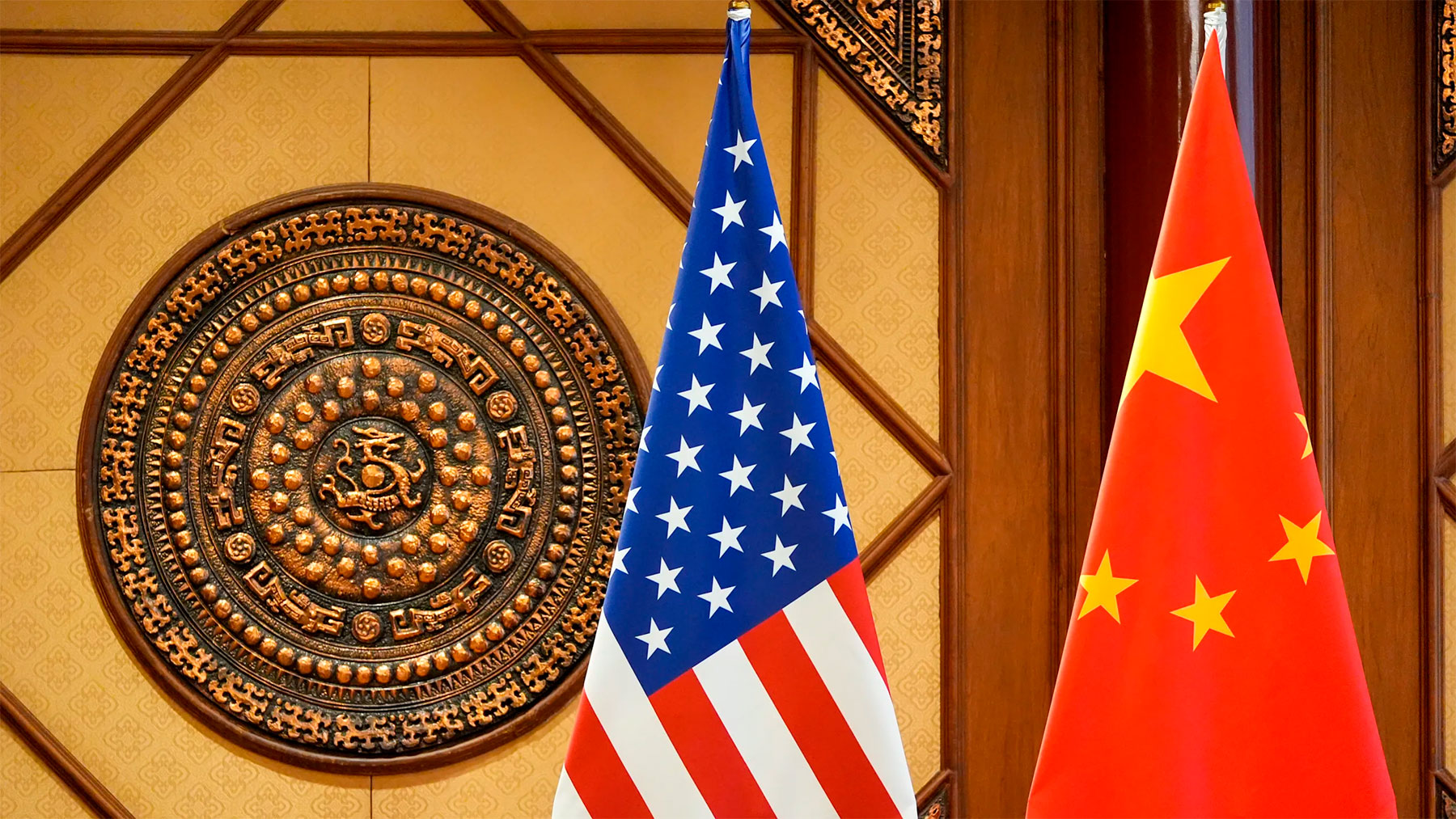The approaching US presidential election is once again giving rise to discussions about who is best for Russia. Once again, there is a temptation to view Republican candidate Donald Trump as a more acceptable politician for Moscow. Trump says he hasn’t ruled out a “deal” with Russia. His thinking is transactional. He stands for promoting the national interests of his country, but in words he is ready for deals: we are for you, you are for us. What a Republican says from a position of strength bothers few people in Russia, as they have long been accustomed to this and are ready for power politics.
Trump's victory in the 2016 elections was greeted with applause in Moscow. At that time, Russian-American relations had already been undermined by accumulated contradictions, with the issue of Ukraine at the forefront. At the time, it seemed that the situation was still reversible. Experienced Russian Americanists and diplomats even then warned against excessive hopes. Trump's populism was unlikely to reverse objective security trends. They were right. Almost the entire term of Trump's presidency was marked by speculation about Russian interference in the 2016 elections in favour of the winning candidate. While he managed to avoid impeachment over this perceived infraction, the topic of intervention hobbled American diplomacy with regards to Russia. At the same time, Trump was an active supporter of sanctions against Russian gas pipeline projects, especially Nord Stream 2.
The bottom line is that Trump has shown that he is ready to decisively impose sanctions when he considers it appropriate and necessary. In general, movements towards dialogue with Russia have not led to any clear results. In addition, Trump turned out to be an active opponent of the arms control regime.
If Trump had been in Biden's place at the end of 2021, his policy towards Russia would have been of a similar nature. After the start of the military operation, Washington would have unleashed a “tsunami of sanctions” on Russia regardless of who was in the Oval Office. Finally, Trump’s rise to power is unlikely to lead to the destabilisation of the American political system, and if internal divisions worsen, they are unlikely to affect foreign policy.
Those who are counting on “deals” with the United States under Trump, or at least on more constructive relations in the spirit of realism, are mistaken. The Trump factor will not play a significant role in changing the structure of relations between Russia and the West. Generally speaking, Moscow should not care who exactly the US elects as president. The figure of the president is unlikely to play a big role in Russian-American relations.
The approaching US presidential election is once again giving rise to discussions about who is best for Russia. Once again, there is a temptation to view Republican candidate Donald Trump as a more acceptable politician for Moscow. Trump says he hasn’t ruled out a “deal” with Russia. His thinking is transactional. He stands for promoting the national interests of his country, but in words he is ready for deals: we are for you, you are for us. What a Republican says from a position of strength bothers few people in Russia, as they have long been accustomed to this and are ready for power politics.
However, those who are counting on “deals” with the United States under Trump, or at least on more constructive relations in the spirit of realism, are mistaken. The Trump factor will not play a significant role in changing the structure of relations between Russia and the West. Generally speaking, Moscow should not care who exactly the US elects as president. The figure of the president is unlikely to play a big role in Russian-American relations.
Trump's victory in the 2016 elections was greeted with applause in Moscow. At that time, Russian-American relations had already been undermined by accumulated contradictions, with the issue of Ukraine at the forefront. At the time, it seemed that the situation was still reversible. A year and a half before Trump’s electoral triumph, the Minsk agreements on the conflict in Donbass came into force, and the remnants of arms control regimes remained. Trump threatened to “drain the swamp”—to get rid of the dominance of deep state bureaucrats, to solve the accumulated problems in foreign and domestic policy in one swoop. Trump's nuclear electorate also seemed close in spirit—workers from the fly-over states, US patriots, people with strong family values, opposed to the cosmopolitan and atomised residents of large metropolises, living largely in a virtual economy and the service sector. Experienced Russian Americanists and diplomats even then warned against excessive hopes. Trump's populism was unlikely to reverse objective security trends. They were right.
Almost the entire term of Trump's presidency was marked by speculation about Russian interference in the 2016 elections in favour of the winning candidate. While he managed to avoid impeachment over this perceived infraction, the topic of intervention hobbled American diplomacy with regards to Russia. By passing PL 115-44 (CAATSA) bill, Congress incorporated Barack Obama's executive orders on Ukraine and digital security into federal law, denying the president the ability to rescind them or remove individuals from sanctions lists without congressional approval. CAATSA also gave the president the authority to use a fairly broad range of restrictive measures. The administration responded pragmatically. Trump signed CAATSA and in 2018, with Executive Order 13849, launched the legal mechanism for its implementation at the executive level. Executive Order 13848 showed Trump's determination to respond to election interference, and 2019 Executive Order 13883 reflected the political will to impose sanctions in response to the Skripal affair. However, the Trump Administration applied sanctions sparingly, for fear of harming American investors in Russia.
State Department lawyers thoroughly criticised the radical initiatives of congressmen in the form of “draconian sanctions” and the DASKA bill. At the same time, Trump was an active supporter of sanctions against Russian gas pipeline projects, especially Nord Stream 2. In an attempt to squeeze the Russians out of the European gas market, he supported the 2019 PEESA law, and then its 2020 amendments. European supply companies, especially the Swiss firm All Seas, which leased pipe-laying vessels, were seriously intimidated by the threat of sanctions. The Russians eventually adapted their vessels for construction, but the construction of Nord Stream 2 was delayed. The bottom line is that Trump has shown that he is ready to decisively impose sanctions when he considers it appropriate and necessary. In general, movements towards dialogue with Russia have not led to any clear results. In addition, Trump turned out to be an active opponent of the arms control regime. During his presidency, despite the scandals, the American political machine continued to operate smoothly and was not influenced by the deep social divisions in American society. As American researcher Aaron Wildavsky noted back in 1966, in the United States there are conventionally “two presidents”—one in foreign policy and one in domestic policy. That is, internal social splits do not necessarily affect foreign policy, which goes on as usual.
The battle between Democrats and Republicans largely reflects internal processes, but in foreign policy, although differences exist, they are not sufficient. Moreover, an inter-party consensus has long been formed regarding Russia.
It is symptomatic that after Trump left the presidency, Joe Biden’s policy towards Moscow also remained fairly balanced until the end of 2021. Biden avoided harsh sanctions on pipeline projects, taking a step towards the positions of Germany and the EU. At the last moment, he gave the green light to extend the START treaty. In 2021, Biden signed Executive Order 14024, which subsequently became the key legal mechanism for sanctions against Russia. Before the start of the special military operation, he used it to a limited extent. The situation began to change against the backdrop of deteriorating relations between the two countries on European security issues and the Ukrainian issue, that is, it was determined by structural factors, and not by the role of the US President. If Trump had been in Biden's place at the end of 2021, his policy towards Russia would have been of a similar nature. After the start of the military operation, Washington would have unleashed a “tsunami of sanctions” on Russia regardless of who was in the Oval Office.
Trump's possible victory in the 2024 elections will change little for Russia. Trump is known as an opponent of arms control. However, its erosion has continued under Biden, and both Donald Trump and Kamala Harris can drive the last nail into the arms control coffin. Trump will more actively lobby for the promotion of American energy resources in the European market, especially since the EU's policy of sanctions against Russia will only contribute to such a course. Trump's threat to force European allies to pay for their security will not break NATO solidarity. Such threats could not undermine it even during his first term, and today, against the background of the crisis in relations with Russia, they will not lead to any changes, even less so.
European NATO allies are now themselves increasing military spending. Trump will not be able to untie the Ukrainian knot unless objective conditions are ripe for resolving the conflict, including, for example, the depletion of resource capabilities to wage the conflict or a decisive victory for Russia. Finally, Trump’s rise to power is unlikely to lead to the destabilisation of the American political system, and if internal divisions worsen, they are unlikely to affect foreign policy. The bottom line is that the outcome of the US elections for Russia is of purely secondary or even tertiary importance. It is premature to consider it a significant factor in Russia’s relations with the United States and the collective West.
First published in the Valdai Discussion Club.






